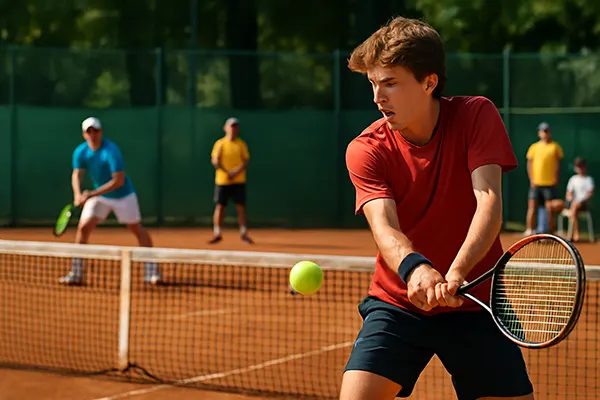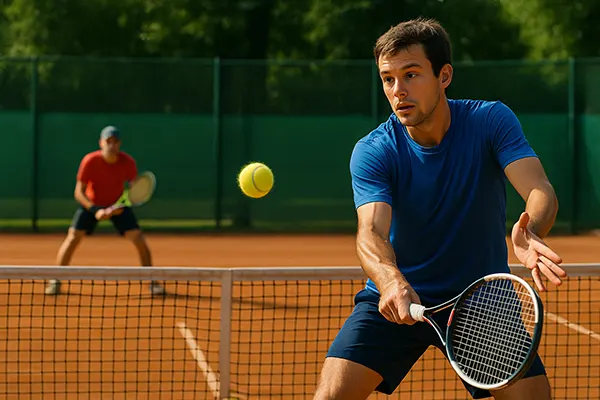
Dark Side of Tennis: Match-Fixing and Its Impact on Youth Tournaments in Europe
In recent years, professional tennis has faced an uncomfortable truth—match-fixing is not limited to the top ranks. It infiltrates the lower levels of the sport, where young players compete for ranking points, recognition, and survival. In 2024 alone, multiple investigations uncovered manipulations involving players on the ITF and Challenger circuits. These revelations demand scrutiny, particularly as they endanger the careers of aspiring professionals and the integrity of the sport itself.
Current Landscape of Match-Fixing in Tennis
According to data from the International Tennis Integrity Agency (ITIA), there were 72 confirmed cases of match-fixing between January 2023 and February 2025. A significant proportion of these involved players ranked outside the top 300, where financial pressures and limited income increase vulnerability to illegal approaches. Many of the incidents originated from Eastern and Southern Europe, although their ripple effects extend across the entire continent.
The ITF Men’s and Women’s World Tennis Tours, often the launchpad for juniors transitioning to professional careers, are particularly susceptible. A 2024 report from Sportradar Integrity Services revealed a 48% increase in suspicious betting patterns on matches at these levels compared to 2022. This suggests not only a growing problem but also a systematic targeting of developmental events.
Several bans issued in late 2024, including lifetime suspensions for multiple Eastern European players, highlighted the scale of manipulation. In many cases, players were found guilty of accepting bribes ranging from €1,000 to €3,000 per fixed set—sums that seem modest, yet carry devastating consequences for sporting fairness.
How the System Enables Corruption
Limited prize money, lack of sponsorship, and the pressure to climb the rankings form a toxic combination. For example, a player reaching the second round of a $15,000 ITF event typically earns less than their weekly expenses. With no federation support and little media exposure, some athletes see match-fixing as a necessary evil to fund their careers.
Moreover, betting markets cover almost every professional match, even those without live broadcasting. This allows fixers to place bets with relatively low risk of detection, particularly on niche outcomes like double faults or first-game winners. The data collected by monitoring agencies confirms that betting irregularities occur most frequently in events with limited oversight.
Organised crime groups often coordinate such activities, using intermediaries to contact players, arrange payments, and even rehearse match scripts. These operations are highly structured and difficult to dismantle, especially in jurisdictions with weak enforcement or corrupt sporting bodies.
Implications for Young British Players
British tennis prospects are not immune to these developments. Many emerging players from the UK participate in European ITF and Challenger events due to the limited number of domestic tournaments. Exposure to compromised competitions raises serious concerns about their professional development and ethical resilience.
Leading British coaches, such as Mark Hilton and Ryan Jones, have expressed worry about the normalisation of manipulation at the grassroots level. In a January 2025 interview with the Lawn Tennis Association (LTA), Hilton stated: “We tell our players to stay focused, but when they lose to someone who’s clearly not playing clean, it’s demoralising. It affects their trust in the system.”
Furthermore, the psychological toll can be long-lasting. A young player who suspects opponents of fixing may become discouraged, question their own abilities, or worse—consider unethical offers themselves. The long-term effect is a degradation not just of results, but of values that underpin competitive sport.
Educational and Preventative Measures
The LTA has initiated several programmes to educate athletes on the risks and consequences of match-fixing. These include mandatory integrity seminars for juniors entering the pro circuit, as well as anonymous reporting tools for suspicious approaches.
However, experts argue that prevention must start even earlier. Tennis Europe, in collaboration with the ITIA, is planning to introduce anti-corruption curriculum in under-14 development camps. This proactive approach aims to build awareness before players are exposed to professional-level temptations.
Moreover, there is a growing push for increased funding and transparency in lower-tier tennis. Improving tournament oversight and offering players a living wage could dramatically reduce the allure of illicit incentives.

European Tournaments Under Scrutiny
Several youth tournaments across Europe have come under the spotlight following match-fixing revelations. Events in Romania, Bulgaria, and Turkey have shown recurrent patterns of suspicious activity. In many cases, organisers were either complicit or lacked resources to address integrity breaches effectively.
The 2024 ITF Futures in Constanța, for instance, had five flagged matches in a single week. These matches involved players from five different countries and triggered investigations by both local authorities and international watchdogs. The tournament has since been suspended pending audit.
Concerns have also been raised about online betting access during these events. Although some matches attract fewer than 30 spectators, they are still listed on global betting exchanges. This discrepancy underscores a major gap between tournament scale and financial exposure.
What Needs to Change
First, regulation must catch up with technological reality. While agencies like ITIA are stepping up enforcement, local federations and event organisers must invest in staff training, real-time monitoring, and stricter licensing standards.
Second, betting operators should reconsider offering odds on developmental-level matches. A voluntary moratorium on ITF-level betting—already trialled by a few Scandinavian firms—could protect young athletes from manipulation.
Finally, international cooperation is essential. Match-fixing is a cross-border crime, and dismantling its networks requires joint action between sports bodies, law enforcement, and gambling regulators. Only then can the sport rebuild trust and offer young talents a fair court to shine on.
